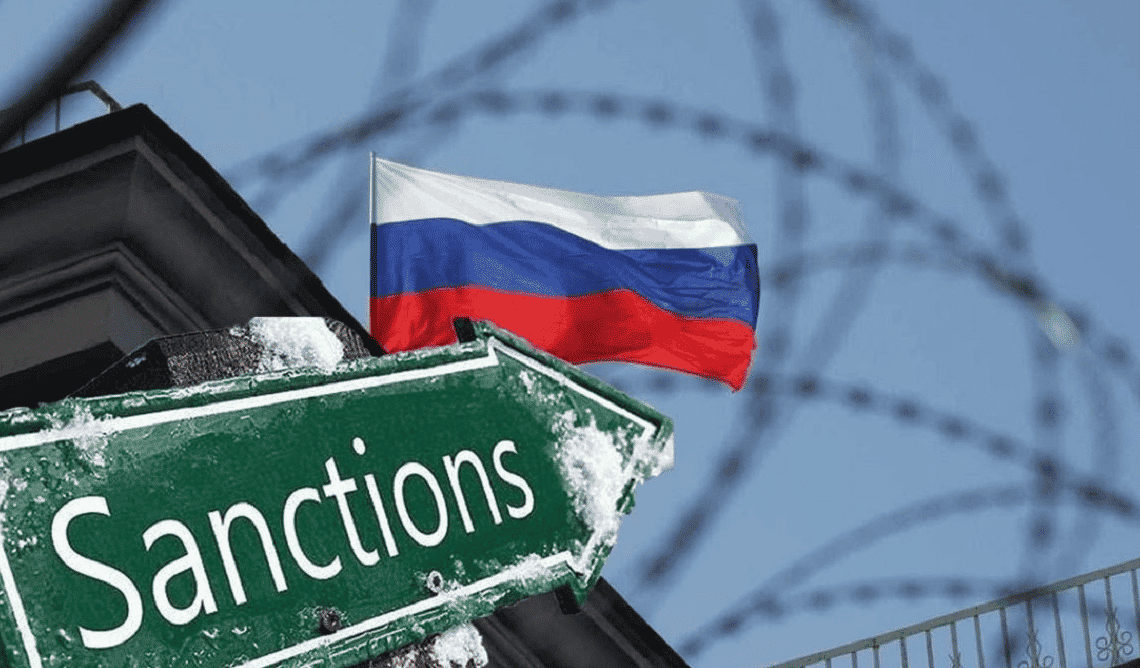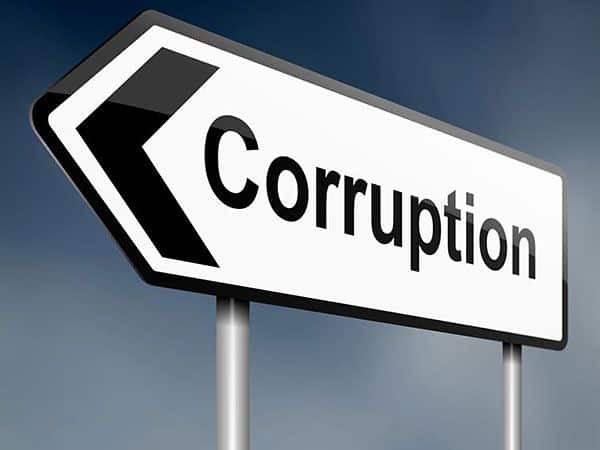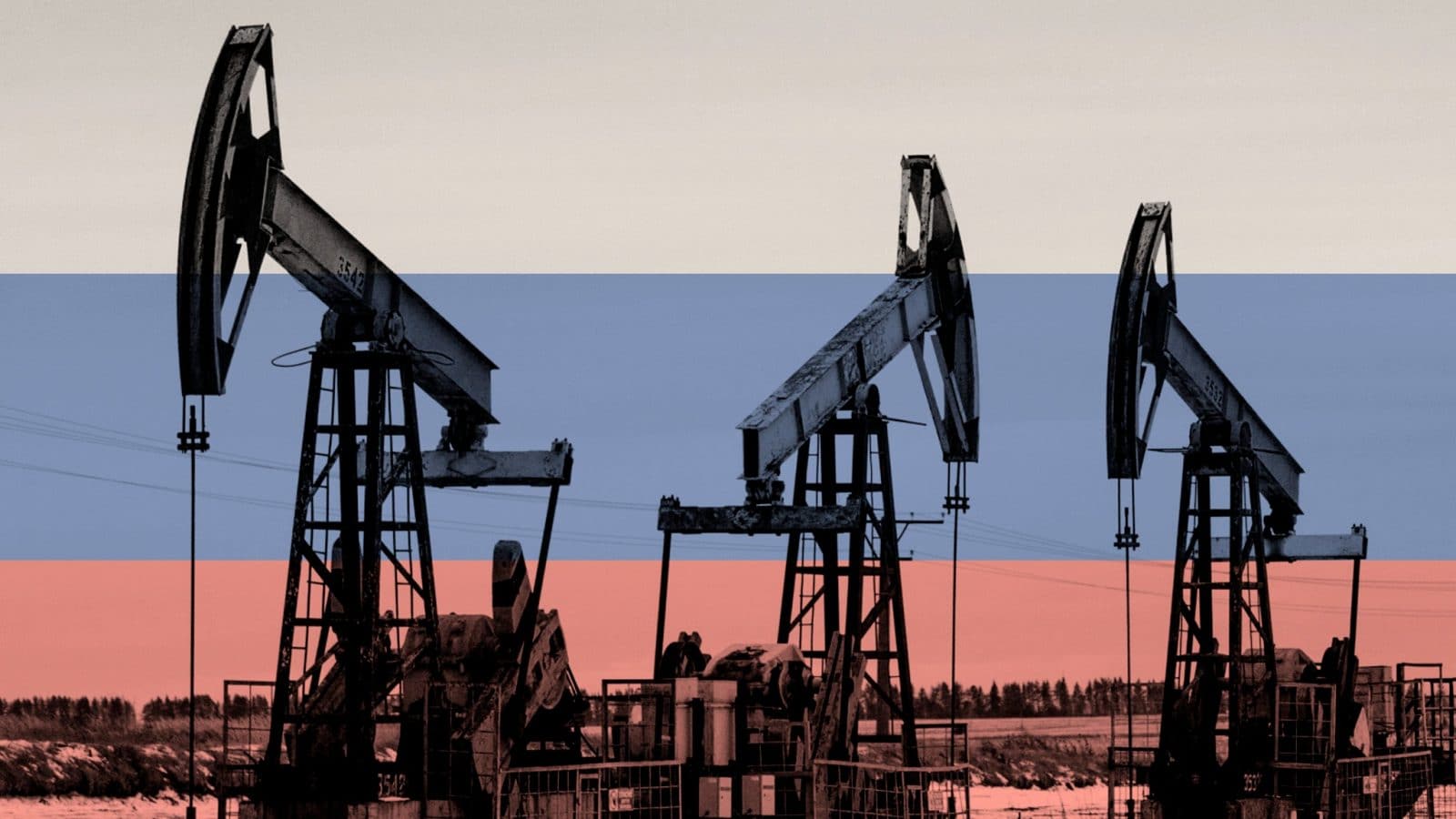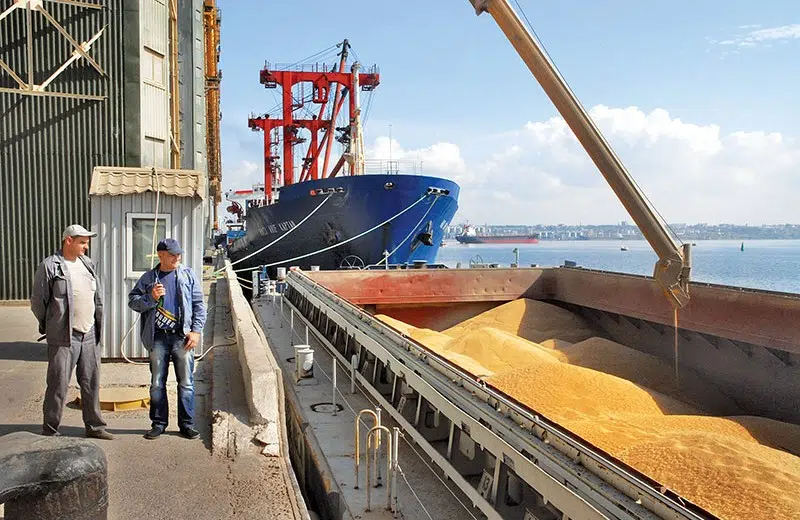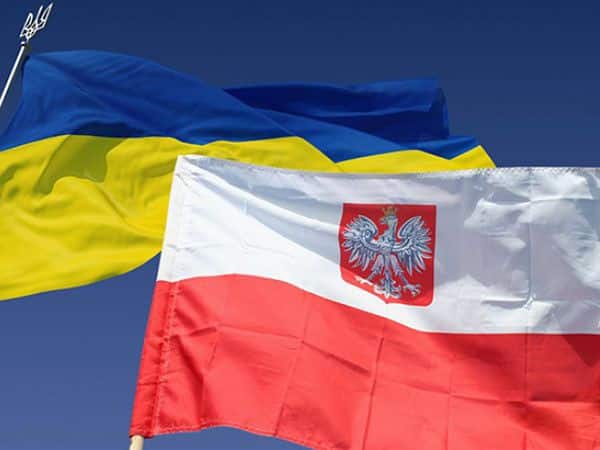Table of Contents
The sanctions imposed by the world against Russia in response to its invasion of Ukraine had consequences for its economy even in the first year of their implementation. However, they have not yet led to the collapse of the country’s economy. This is partially because at the beginning of the full-scale war, allies implemented restrictions with excessive caution, and partially because Russia’s economy proved to be more resilient, with the government seeking ways to circumvent the sanctions.
Which countries have imposed the most and the least sanctions against Russia?
Over the course of more than a year of full-scale war, 47 countries worldwide have imposed sanctions against Russia. The leaders in implementing restrictions against the world’s largest aggressor, as they did a year ago, include the United States, the United Kingdom, Canada, Japan, and European Union countries. The least sanctions, involving only one type of restriction, have been imposed by 7 countries:
-
Argentina.
-
South Korea.
-
Serbia.
-
Taiwan.
-
Turkey.
-
The Philippines.
-
Chile.
The remaining 148 countries worldwide have not imposed any sanctions against Russia. These countries include African, Middle Eastern, and Asian nations (except for Japan, the Philippines, and Taiwan mentioned above), as well as South American countries (except for Argentina and Chile). These states continue to support the economy of the occupying country through trade, technology exchange, and more.
As it was a year ago, the most common types of sanctions are personal sanctions against individuals and entities, as well as trade restrictions with Russia. Typically, they include the following:
-
Sanctions against individuals and entities: personal sanctions imposed by various countries around the world target Russian officials, businessmen, bankers, and oligarchs who finance the defense sector, as well as officials from the so-called LPR/DPR and military personnel fighting on Russia’s side, among others. These sanctions involve freezing assets and travel bans to countries. Sanctions against companies involve freezing assets, restricting their sale, and limiting trade and financial transactions.
-
Export restrictions on goods to Russia: these restrictions apply to goods of a military or dual-use nature that Russia could use in its war against Ukraine. Some countries have also restricted the supply of goods used in the oil industry, machinery manufacturing, high-tech production, including lithium, quantum technologies, electronic components, and more. The EU and Japan have also imposed restrictions on the export of luxury items to Russia.
-
Restrictions on the sale and import of Russian goods: this includes imposing additional customs tariffs on imports from Russia and Belarus, as well as refusing to purchase certain Russian goods such as gas, coal, steel products, precious stones, and luxury items.
-
Suspension of investments in Russia: this involves halting external investments in Russia and discontinuing grant funding for research projects.
-
Restrictions on Russian media: EU countries have imposed sanctions against Russian state propaganda media outlets, including Russia Today and Sputnik. Latvia has additionally blocked 18 Russian television channels, and the United States has imposed sanctions on three state-controlled networks: Channel One, Russia-1, and TRK NTV.
The European Union is among the most active in imposing sanctions. It has implemented 11 sanction packages that encompass restrictions in various areas such as trade, finance, tourism, and more.
See also: 500,000 euros for avoiding sanctions. How law firms in Europe help Russians
Sanctions against Russia or Russians have been imposed by over 50 international organizations and associations. Twelve of them have excluded Russia or terminated its representation, including the Council of the Baltic Sea States, the Council of Europe, the Parliamentary Assembly of the OSCE, the European Organization for Nuclear Research (CERN), the European Language Association, the Organization for Economic Cooperation and Development (OECD), the World Tourism Organization, and the European Federation of Leasing Market Participants.
The Financial Action Task Force (FATF) suspended Russia’s membership, though it did not add the country to its “blacklist” despite violations of FATF standards and numerous demands from Ukraine.
Several international organizations have discontinued cooperation in ongoing projects and canceled new ones. The European Space Agency (ESA) ceased its participation in joint research programs with Russia related to the Moon and lunar space and the ExoMars rover launch mission. The European Union Aviation Safety Agency suspended all issued certificates and banned the provision of technical assistance and other services in the aviation and aerospace industry.
Several international educational organizations, universities, and research institutions have also discontinued cooperation with Russia. Additionally, the European Bank for Reconstruction and Development (EBRD), which ceased investments in Russian projects in 2014, and the World Bank have announced the closure of offices and the termination of investment projects in Russia and Belarus. Trading of Russian company stocks has been halted by the London and Singapore Stock Exchanges, and the World Federation of Exchanges has excluded the Russian stock market.
What sanctions against Russia does Ukraine impose?
Regarding the sanctions imposed by Ukraine, the comprehensive grounds for applying sanctions and their types are determined by the corresponding Ukrainian law. Individuals or companies whose activities undermine national security and threaten the sovereignty of the state may lose the right to dispose of their Ukrainian assets. These assets can be seized for the benefit of the state, and the withdrawal of funds beyond Ukraine’s borders can be restricted. Sub-sanctioned companies may have their licenses and special permits revoked.
In total, the law provides for more than 20 types of sanctions, including a ban on participating in privatization, leasing state property, obtaining licenses and permits from the National Bank of Ukraine, increasing the statutory capital of sub-sanctioned companies, terminating trade agreements, and prohibiting the transfer of technology, among others.
At the beginning of the full-scale war, the sanctions process in Ukraine proceeded relatively slowly. The National Security and Defense Council of Ukraine approved the first three sanction packages on May 24, 2022. These packages contained restrictions on two individuals and two companies. The implementation of sanctions accelerated from June of the previous year.
As of the beginning of July this year, President Volodymyr Zelenskyy had signed over 40 sanction packages against more than 6,700 individuals and nearly 4,300 legal entities. Thus, among all countries, Ukraine has imposed the most personal sanctions against individuals and companies that have supported or directly participated in Russia’s war against Ukraine.
Work on implementing personal sanctions is ongoing. According to the law, recommendations for restrictions on individuals and legal entities can be made by the Cabinet of Ministers, the Verkhovna Rada (Ukraine’s Parliament), the Office of the President, and the National Agency on Corruption Prevention.
The National Agency on Corruption Prevention (NACP) is actively searching for individuals and companies involved in the war in Ukraine on the side of Russia and is compiling lists of individuals and entities to which sanctions should be applied. As of the end of July, NACP recommends imposing sanctions on over 16,000 individuals and over 3,000 legal entities.
Since February 24, 2022, the Cabinet of Ministers has approved 22 resolutions with recommendations for sanctions against over 1,000 individuals and 961 legal entities. In the Verkhovna Rada, since the beginning of the full-scale war, deputies have registered 8 resolutions with recommendations for sanctions against nearly 4,000 individuals and 176 legal entities. The National Security and Defense Council of Ukraine takes these recommendations into account and also independently creates sanction lists, gradually imposing sanctions on recommended subjects.
Personal sanctions are not the only type of sanctions that Ukraine has been implementing since the start of the full-scale war. As of mid-August 2023, President Zelenskyy has signed decrees, and the Verkhovna Rada has approved resolutions for 2 packages of sectoral sanctions. These are sanctions that restrict specific sectors of the economy as a whole. This includes the decision by the National Security and Defense Council of Ukraine to impose sanctions against the Central Bank of Russia and all financial institutions registered and operating in the territory of the aggressor state (with restrictions imposed for 50 years). There is also the National Security and Defense Council’s decision to impose sectoral sanctions against Iran. Sanctions against Iran entail a complete ban on trade, resource transit, flights by Iranian residents to Ukrainian territory, and investments in that country.
Personal sanctions come into effect when the President approves the National Security and Defense Council’s decision with his decree. Sectoral sanctions, according to the sanctions law, are imposed as follows: the President approves the National Security and Defense Council’s decision, and the Verkhovna Rada has 48 hours to adopt the corresponding resolution, which finally confirms these sanctions.
The government has adopted resolutions with recommendations for sectoral sanctions against Syria (in April of this year) and the defense sectors of Russia and Belarus (at the end of July of this year). However, there are currently no decisions from the National Security and Defense Council of Ukraine regarding the implementation of the Cabinet’s proposals.
How Ukraine limits Russia’s influence at the legislative level
Personal sanctions against individuals and companies are not the only way Ukraine restricts Russian influence. Since the start of the full-scale war, the Reform Index project has identified 41 significant regulations that impose restrictions or prohibitions on activities in Ukraine by entities associated with Russia.
Most of these documents involve restrictions in the fields of culture, media and publishing services, and financial services, as well as the cancellation of tax benefits and a prohibition on the storage and processing of data by entities with ties to Russia.
Specifically, in the field of culture, the Verkhovna Rada (Ukraine’s Parliament) has passed laws that include:
-
Prohibiting the use of Russian occupation symbols on the territory of Ukraine and the activities of pro-Russian public organizations.
-
Banning the tours of Russian performers who supported the war against Ukraine.
-
Prohibiting the distribution of books and publishing products from Russia and Belarus, and more.
Additionally, the Verkhovna Rada has made amendments to the Media Law that prohibit the coverage of the activities of the Russian government without accompanying such information with notification of Russia’s status as an aggressor country.
See also: Russia managed to increase missile production several times despite Western sanctions
The Verkhovna Rada (Ukraine’s Parliament) has also repealed tax and customs exemptions for the import of Russian scientific equipment. Furthermore, Russian citizens are prohibited from obtaining e-resident status, which, among other things, allows for the remote opening of businesses in Ukraine.
Russian citizens are also prohibited from holding leadership positions in Ukrainian state-owned enterprises, obtaining licenses for subsoil use, and licenses for activities related to nuclear energy.
Russian companies and citizens are barred from providing financial services in Ukraine (in this context, Alfa-Bank, which was owned by Russian oligarchs, and was nationalized in July) and conducting auditing activities. The Verkhovna Rada has also prohibited the transfer of personal data to entities registered in Russia and countries that are part of customs and military unions with Russia.
Do the sanctions work?
Since the start of the full-scale war, the coalition of Ukraine’s allies has been cautious and limited in implementing sanctions, and it is expected that they will have a slow but long-term impact on the aggressor country’s economy. It is also worth noting that both before and after the full-scale invasion, the Russian government has sought ways to evade restrictions and adapt to international pressure. However, the effects of some sanctions can already be assessed.
Since February 24, 2022, allied countries have imposed sanctions on approximately 10,000 individuals responsible for the war in Ukraine. These sanctions include freezing the funds and assets of Russian businessmen and individuals close to power. These individuals still earn money in Russia, but they cannot spend it in a significant part of the world or dispose of their luxury properties, such as villas and yachts, in these countries.
For some of them, one of the few remaining options is to spend their money within Russia, such as acquiring other companies or stakes in them.
The United Kingdom has gone further than attempts to isolate Russian authorities: it proposes that sanctioned oligarchs donate their frozen assets to Ukraine. At the end of the previous year, Canada seized the assets of sanctioned oligarch Roman Abramovich and announced its intention to transfer them for the benefit of Ukraine’s recovery.
Although assets belonging to the Russian state or Russian oligarchs have been frozen in many countries, there are legal and political complexities associated with confiscating these assets or transferring them to Ukraine. Western governments are considering how to reconcile this with protecting property rights.
The initial restrictions on imports and the mass exodus of international companies from Russia at the start of the war led to disruptions in logistics within the country. As a result, Russians quickly experienced shortages of basic goods such as paper, personal hygiene products, and household appliances. The breakdown of supply chains resulted in increased production costs and, consequently, higher prices for end consumers.
However, as early as March of the previous year, Russia found a way to circumvent these restrictions through parallel imports, where Russian companies purchase prohibited goods from other companies that have acquired them legally.
As of the end of April 2023, parallel imports in Russia have reached over $20 billion and have led to shortages in neighboring countries’ warehouses. Unfortunately, under this scheme, the aggressor country has been able to resume imports of both consumer goods (although not all) and some defense-related items or their components.
One of the most anticipated restrictions — the ban on importing Russian oil by sea and price limitations on other types of oil and petroleum products — has already impacted Russia’s revenues. According to an analysis by the Kyiv School of Economics, Russian exports of crude oil and petroleum products fell by $15.6 billion, accounting for 40% of the total export earnings in the fourth quarter of 2022.
Furthermore, Russia lost the European market. Now, the main importers of its oil are India and China (almost 75% of deliveries in the first quarter of 2023), which, however, can export fuel made from Russian oil to the EU. Although Russia can still export oil and petroleum products to countries that have not joined the sanctions, it is forced to sell them at a significant discount.
At the same time, the KSE Institute emphasizes the importance of verifying compliance with the sanctions regime by Western companies to prevent circumvention of the restrictions and further lowering the price ceilings for crude oil and petroleum products.
It is not enough to simply intensify sanctions; they need to be monitored as well
Sanctions imposed by countries around the world since the beginning of the full-scale war have already significantly impacted Russia’s economy. According to the KSE Institute, Russia’s GDP in 2022 officially fell by 2.1%, and the budget deficit for the first 5 months of 2023 reached 3.41 trillion rubles, or 117% of the planned indicator for 2023. This has forced the terrorist state to increase internal borrowing and utilize the National Welfare Fund.
Despite the fact that the existing sanctions are already having an effect, Russia is still capable of sustaining its economy and continuing its aggressive war in Ukraine. Moreover, it constantly seeks ways to bypass the restrictions through parallel imports and cooperation with countries that have not joined the sanctions (including China, Turkey, India, and others). Russia continues to generate income from the sale of energy resources (383.7 billion dollars in 2022, a record since 1995), mineral fertilizers (16.7 billion dollars in 2022), as well as diamonds and non-ferrous metals.
Therefore, to strengthen the sanctions pressure on Russia, Ukraine and its allied countries must not only intensify restrictions but also monitor compliance with the sanctions regime by companies.
The continued search for and inclusion in sanctions lists of individuals who assist Russia and support its armed aggression is equally important. Ukraine has already adopted a series of laws that allow for the confiscation and sale of Russian assets to fill the budget and at least partially cover the war-related losses. In addition, the President has signed a law to create an open Unified Sanctions Register, which will contain information about all sub-sanctioned individuals and companies.
However, there are troubling “alarm bells” when it comes to personal sanctions — some oligarchs have managed to have restrictions lifted through the courts. As of the end of July, it is known that the United Kingdom lifted sanctions on businessman Oleg Tinkov and former Deputy Chairman of Sberbank Lev Khasis.
Although Ukraine’s allies have actively pursued the search for the assets of Russians and their accomplices, these assets currently bring no benefit to Ukraine. To compel Russia to pay for the losses, international partners must develop a mechanism for transferring assets from Russians to the benefit of Ukraine. In November of last year, the United Nations General Assembly adopted a resolution recognizing the need for the creation of an international mechanism for compensating Ukraine for war-related losses, but its development is still ongoing.
Originally posted by Yelyzaveta Dorontseva on 24 Kanal. Translated and edited by the UaPosition – Ukrainian news and analytics website
See also: How the West loses to Russia in energy sanctions

